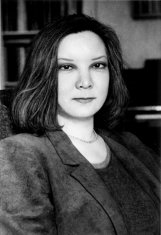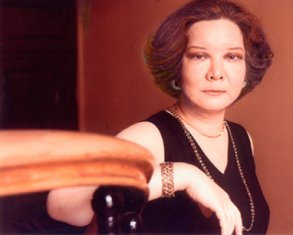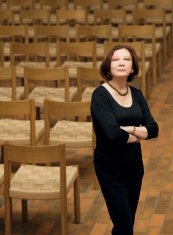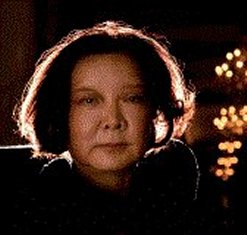|
|
Kei Koito (Organ) |
|
Born: Kyoto, Japan |
|
Biography |
|
Kei Koito enjoys her career as an esteemed concert organist. She has performed throughout Europe, Russia, Japan, and the Americas. She is acclaimed for her expertise on Baroque and Renaissance music, especially that of J.S. Bach. Kei Koito has won numerous prestigious prizes as a recording artist and is often invited to judge international organ competitions. She is also a founder of the Festival Bach de Lausanne (Lausanne Bach Festival/Bachfest Lausanne), of which she has served as artistic director since its genesis in 1997. Kei Koito is currently an organ professor at the Haute Ecole de Musique/ Conservatoire de Lausanne (Lausanne University of Music/Musikhochschule Lausanne) in Switzerland. |
|
Education |
|
Kei Koito was born in Kyoto, the ancient capital of Japan, into a family of artists. Her childhood was steeped in the arts and culture. She was attracted at an early age to the world of music, especially that of J.S. Bach. She began her musical training at the age of 6, first with piano, followed by cello and voice. At the age of 12, she discovered the organ, which soon became her favorite instrument.
As a student at Hiranuma College of Yokohama, Kei Koito played the cello for two years in the school orchestra. Also as a proficient pianist, she performed L.v. Beethoven’s Third Piano Concerto with City Orchestra of Yokohama. After graduation from this High School, she decided to commit herself to organ studies. She was sixteen at that time.
Kei Koito graduated from National University of Fine Arts and Music of Tokyo/Tokyo Geijutsu Daigaku, where she achieved high distinctions in organ, harpsichord, music theory, chamber music, philosophy and musical esthetics. She also has a master’s degree from the Conservatory of Geneva/Conservatoire de Genève/Musikhochschule, Genf, where she won several prestigious prizes including the First Prize of Organ Virtuosity with distinction, of Improvization and of Basso Continuo, Special Grand Prix of the Year, and Otto Barblan Prize for the best interpretation of J.S. Bach. All was awarded unanimously.
Kei Koito studied organ under Pierre Segond (general organ studies) in Geneva, and under Xavier Darasse (romantic, symphonic and contemporary repertoires) in Toulouse. She also studied early music performance and introduction to musicological research with Luigi Ferdinando Tagliavini in Fribourg, baroque music with Reinhard Goebel in Köln, and orchestration, music analysis and composition with Eric Gaudibert in Geneva. |
|
Repertoire |
|
Starting in 1985, Kei Koito focused in on the music of J.S. Bach and his important predecessors such as Dietrich Buxtehude, Georg Böhm, Nicolaus Bruhns, Girolamo Frescobaldi, Johann Kaspar Kerll, Froberger, Muffat, Johann Pachelbel, Fischer, Nicolas de Grigny, François Couperin, and their precursors. Consequently, the research of early music became one of Kei Koito’s major interests. She not only adapts her style of playing based on principles of early performance practices, but incorporates her own understanding and observation of historical instruments, and her personal inspiration and intuition into her playing.
Prior to 1985, Kei Koito was a keen performer of romantic and symphonic music (Robert Schumann, Johannes Brahms, Franz Liszt, Reubke, Widor, Maurice Duruflé, etc.).
Between 1978 and 1996, she was ardently involved in avant-garde music including Ligeti, early Peter Maxwell Davies, Luciano Berio, and other 20th-century composers from all over the world. She devoted considerable amounts of time to performing world premieres of newly composed pieces, some of which were dedicated to her.
Kei Koito’s interpretation of music for every repertory is defined not only by the different aesthetics of the relevant repertoire, but also by the direct emotional impact which engenders contemporary audiences. |
|
Major Prizes & Awards |
|
Major Prizes:
Diapason d’or
Choc de Classica (formerly known as Choc du Monde de la Musique) 10/10 of Répertoire
Événement exceptionnel/ffff of Télérama
Editor’s choice CD; Le Monde
Editor’s choice CD; Écouter-Voir
Editor’s choice CD; Scènes magazine
Editor’s choice CD; L’Éveil culturel
Editor’s choice CD; Le Temps
Editor’s choice CD; Classical Newsletter
Editor’s choice CD; Early Music Review
Editor’s choice CD; Music Web-International/Classical CD Reviews
Editor’s choice CD; Gramophone
Editor’s choice CD; ResMusica
Editor’s choice CD; Toccata Alte Musik Aktuell
Editor’s choice CD; Musik & Theater
Editor’s choice CD; Organists’ Review
Editor’s choice CD; Orgues Nouvelles
Awards:
Prix Culturel Vaudois de Musique (Fondation Vaudoise pour la Culture/Section musique), 2010
Fondation Pro Arte de l’Office suisse de la Culture, 1994
Distinctions:
Her name appears in the International Who’s Who in Music and Musicians’ Directory, Cambridge, David M. Cummings, 1998/1999.
Her name appears in the Dictionnaire des interprètes, Paris, Robert Laffont, 1995. |
|
Concert Career |
|
Kei Koito made her professional debut in a series of recitals at Victoria Hall in Geneva and Auditorium Maurice Ravel in Lyon.
As a highly acclaimed concert organist, Kei Koito is regularly invited to perform as a soloist at the most distinguished festivals and concert venues throughout Europe, Asia, and North and South America.
Her vast performance experience includes playing with the Baroque Orchestra Musica Antiqua Köln (director Reinhard Goebel) for J.S. Bach’s Cantatas, Organ Sinfonias and Reinhard Goebel’s Organ Concertos, and the Vocal Ensemble Gilles Binchois (director Dominique Vellard) for the Italian Renaissance/Baroque and the French classical/pre-classical repertoires. She has also performed Concertos by Haydn and Rheinberger with Orchestre de Chambre de Lausanne, and the Concerto for Organ by Francis Poulenc with Orchestre de la Suisse Romande. |
|
Major Festivals |
|
Performances at Major Festivals : Grand Auditorium de Radio France/Paris; Festival Estival de Paris (St-Germain); Festival d’Automne à Paris (St-Eustache); Festival d’Art Sacré de la Ville de Paris (St-Séverin, St-Thomas d’Aquin); Auditorium Maurice Ravel de Lyon; Festival Musica de Strasbourg; Festival d’Avignon; Malaucène; St-Guilhem-le-Désert; Festival Ribéracois; La Roque d’Anthéron; Saint-Michel-en-Thiérache; Chartres; Bourges; Les Académies musicales de Saintes; Festival de Sablé; Acadmie Bach d’Arques-la-Bataille; Renaissance de l’orgue à Bordeaux; Louvie-Juzon; Angoulême; Châlon-sur-Saône Bourg-en-Bresse; Le Havre; Lille; Wasquehal; Rouen; Mont-Saint-Aignan; Aubenas; Besançon; Monaco; Orléans; Reims; Fère-en-Tardenois; Toulon; Marseille; Carpentras; Bolène; Montpellier; Auxerre; Colmar; Meaux; Beauvais; St-Antoine-l’Abbaye; Béziers; Mougins; St-Martin-de-Boscherville; Studio für Neue Musik Berlin; WDR Köln; Bremen, Lübeck; Göttingen; Stuttgart; Kempen; Bonn; Altenburg; Aachen; Aurich; Leer; Duisburg; Tangermünde; Wiener Musiksommer/Klangbogen; Grosser Sendesaal/ORF/Wien; Dom, Wien; Hochkirche, Wien; Innsbruck; St Florian; St Wolfgang; Zwettl; Gmunden; Millstatt Am See; Igls; Ossiach/Carinthischer Sommer; Festival Haarlem; Amster; Maastricht; Festival Oude Muziek/Utrecht, Zwolle; Festival Ars Musica, Bruxelles; Festival de claviers de Bruxelles; Conservatoire Royal de Bruxelles; Festival de Wallonie, Festival de Liège; Luxembourg; Danish Radio/Copenhagen; Soro Festival; Roskilde; Kristiansand; Oslo; Internationale Musikfestwochen Luzern (KKL Konzertsaal and Hofkirche); Jesuitenkirche Luzern; Basel; Bern; Schaffhausen; Solothurn; Ernen; Tage für Neue Musik Zürich; Grossmünster and Fraumünster/Zürich; Festival Bach de Lausanne; Festival d’Art Sacré/Fribourg; Festival Extasis/Genève; Victoria Hall/Genève; Festival du Jura; Bienne; Neuchâtel; Payerne; La Chaux-de-Fonds; Sion/Valère; Magadino; Carasso; Festival Antegnati, Bellinzona; Tchaikovski Conservatory/Moscow; Kaliningrad; Chelyabinsk; Dniepropetrovsk; Warsaw Philharmony; Cracow Philharmony; Kamien Pomorski; Castle of Szczecin; Belgrad; Sofia Philharmony; Summer Festival/ Prague; Castle of Cheb; Olomouc; London Bach Festival; Festival St Albans; Dublin Festival; Festival Antidogma/Torino; Busto Arsizio, Musica e poesia/Milano; Trento; Siracusa; Ravenna; Festival Musica negli Horti Toscana; Tarento; Como; Concerts of Calouste Gulbenkian Foundation/Lisbon; Festival Estoril; Festival Algarve; Auditorio Nacional de Musica/Madrid; Real Academia de Bellas Artes/Madrid; Oviedo; Malaga, Zaragoza; Palma de Mallorca, de Menorca; Ibiza; Léon; Salamanca; Las Palmas; Tel Aviv, Jaffa; Jerusalem; NHK-Radio Japan; Suntory Hall, Tokyo; Ishibashi memorial hall/Tokyo; Cathedral/Tokyo; Musashino Civic Cultural Center; Kyoto; Yokohama; Kobe; Gifu; Izumi hall Osaka Bach Orgelzyklys; CBC Canada; Vancouver; Edmonton; Calgary; Regina; Winipeg; Ottawa; Buenos Aires; Bogota; Montevideo; New York Organ Festival; New York Bach Festival; Gartner Auditorium at the Cleveland Museum of Art; Salt Lake City Mormon Tabernacle Concert Series; Kansas City; Atlanta; Los Angeles; Birmingham; Austin; Hartford; Omaha; Memphis; Naples/Florida; Worcester/Boston; Michigan… and numerous concert series in various concert halls and churches/cathedrals the world over. |
|
Teaching |
|
A highly sought-after pedagogue, Kei Koito has been teaching organ at the Haute Ecole de Musique/Conservatoire de Lausanne (Lausanne University of Music/Musikhochschule Lausanne) since 1992. From the start, her classes included students from all over the world. Some of her students have won prizes at international organ competitions, become organists at famous churches or cathedrals, and others have become concert organists and recording artists. Several other students have pursued careers as professors at conservatories/academies, or even found other artistic professions such as composer, conductor, etc. The goal of Koito’s teaching is to discover or rediscover the originality of each student, which she wishes will prosper later in their individual lives.
Notable former students include (in alphabetical order): Mina Balissat, Pierre-François Baron, Maja Bösch-Schildknecht, Denis Fedorov, Charles Françoise, Ivan Maria Friedman, Igor Goldenberg, Mag. Peter Hödlmoser, Catherina Lemoni-O’Doherty, Prof. Pavao Masic, Slava Murtazin, Ezko Kikoutchi, Masayuki Kôno, Prof. Jadwiga Kowalska, Carl Laliberté, Marta Rogusz, Prof. Roman Szlauzys, Nicolas Viatte, Sébastien Vonlanthen, Edmond Voëffray, Yong-Hee Yang.
Kei Koito has frequently served as a member of juries at numerous international organ competitions including Grand Prix Bach of Lausanne, Wasquehal, St-Omer, Maastricht, Aachen, Liège, Genève, Alkmaar, St Albans. She has also been invited to give lectures, master-classes and seminars at prestigious institutions such as the Royal Academy of Music in London, Austria Baroque Academy in Gmunden/Salzburg, Conservatory of Rouen, Conservatory of Québec, Conservatory of Buenos Aires, University of Belgrad, and many others. |
|
Artistic Direction |
|
Kei Koito is a founder and artistic director of the Festival Bach de Lausanne created in 1997. The Festival Bach consists of concerts by orchestras, ensembles, choirs, and soloists, as well as conferences, seminars, and master-classes. The musical aesthetics of the festival are always connected to the music of J.S. Bach. The program mainly comprises the repertoires of early music (from the 16th to the first half of the 18th centuries).
Kei Koito currently serves as a co-producer of Lausanne Opera for the repertory of early eras, which performs works by composers such as Lully and Monteverdi that are then presented as part of the Festival Bach de Lausanne.
She also founded the “Grand Prix Bach de Lausanne/International Organ Competition” to discover young talents from all over the world.
“The Festival Bach de Lausanne has chosen the - in my view - only possible way to pay respect to music that one admires and loves: to take it as it is (in music that can, of course, only mean : try to stay within the possibilities of the period) and not want to adapt it to our own wishes or ideas. We can know a work of art only by its physical exterior; if we change the exterior we obscure or alter the interior. This honest approach of the Festival is admirably reflected in the choice of artists and programmes.” - Gustav Leonhardt |
|
Compositions (1982-1992) |
|
Between 1980 and 1992, Kei Koito composed quite a few works for various instruments and ensembles. The major musical influences on her as a composer included Varèse, Bruno Maderna, Ligeti, Lutoslawski.
Sensation (on a poem by A. Rimbaud) for voice & piano (1980)
Passacaglia for organ (1981)
Esquisse Alpha for 2 pianos (1982)
Orestes Stasimon for choir (1983)
Permutation (adapted from the studies of P. Klee) for organ and 2 assistants (1984)
Tours du silence for chamber ensemble (voice, woodwinds, brass, percussion & double bass) (1985)
Labyrinthe dynamique for brass ensemble (1985)
Fragment on « Wenn aus der Ferne … » (on a poem by F. Hölderlin) for organ (1986)
Splendid Rotation for 2 amplified harpsichords (1986)
In step, shoulder to shoulder for string quartet (1986)
Passenger (on a poem by J. Nishiwaki) for trumpet & organ (1987)
Cristal Axe for organ & 2 assistants/organists (1988)
Return (Homage to J.S. Bach) for cello & prepared piano (1989)
Poème pulvérisé (on a poem by R. Char) for voice & percussion (1990)
Transmutations (unfinished) :
I, for solo voice|
II, for oboe
III, for trombone
IV, for percussion
V, for ensemble.
In 1992, Kei Koito stopped composing and started concentrating solely on baroque organ performance. |
|
Publications |
|
Articles:
“The Aesthetic of Carl Philipp Emanuel Bach, about his organ works”.
This article was originally published in 1992 in the magazine Organ Kenkyu (Vol. 20, pp. 47-64)-Annual Report of Japan Organ Society on its 20th anniversary. Prior to publication, Kei Koito’s research work was also supported in 1992 by the Department of Early Music at Conservatoire National Supérieur de Lyon (dir. Gérard Geay). The article was also published in Switzerland in the magazine L’Orgue in March, 1996 (pp. 2-14) and in June, 1996 (pp. 13-25). Fr Jap
“On the Sketchbooks of Leonardo da Vinci” in “The Book of My Life by Thirty Persons of Swiss Romand.”, Payot Editions, 2011. Fr
“Nivers and His Admirers”, “The Organ and The Registration for Nivers”, “About The Organ Work of Nivers” in “About the composer G.-G. Nivers, Contemporary of Lully”. Liner notes/text of musicological & artistic presentation for her double CD, 2006/2007.
“About the Clavier Übung III/Organ Mass of J.S. Bach”
Liner notes/text of musicological and artistic presentation for her double CD, 1993.
“About 6 Trio Sonatas, 5 Concertos, Canonic Variations for organ of J.S. Bach”
Liner notes/text of musicological and artistic presentation for her double CD, 1990.
Prefaces:
Preface to The Book of Roger Vuataz, “J.S. Bach or The Apotheosis of Polyphon” in the series “Living Music, Music in Liberty”, Slatkine Editions, 2000.
Interviews:
Interview with Kei Koito, Article on The Art of Fugue, liner notes/text of musicological & artistic presentation in the collection “Temperaments” of Radio France for her double CD, 1999.
Research:
Kei Koito currently works on a new research on the relations between the organ works and the other instrumental/vocal works of J.S. Bach. |
|




|
|
Source: Kei Koito Website
Contributed by Aryeh Oron (November 2012) |
|
Kei Koito : Short Biography | Recordings of Instrumental Works | Festival Bach de Lausanne |
|
Links to other Sites |
|
Kai Koito (Official Website) |
|
|
|